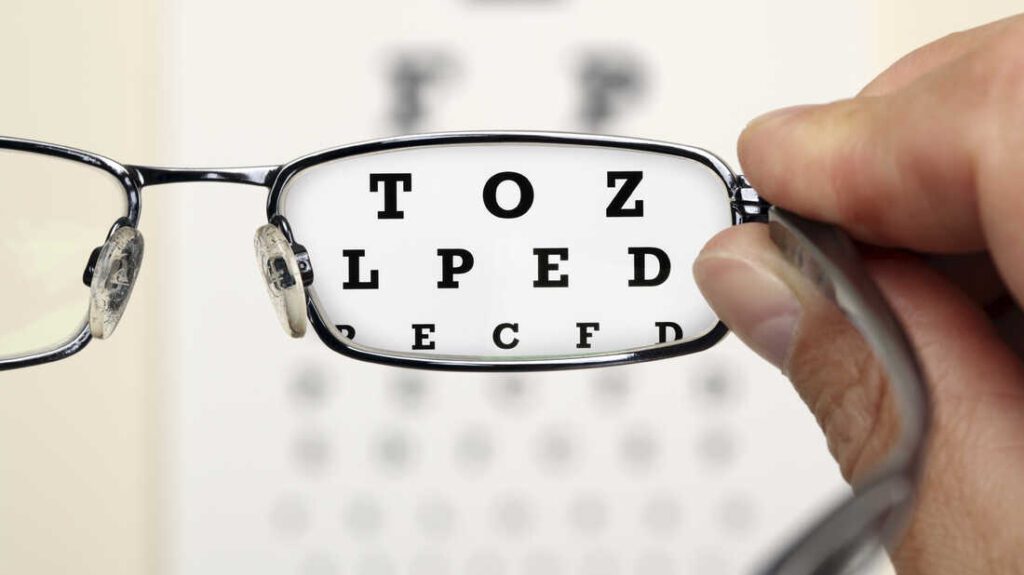Obesity is now a global health problem that affects millions of people all over the world. Obesity is linked to several health problems, like heart disease, diabetes, and joint problems. But one less well-known effect of being overweight is that it can hurt your vision. In this piece, we look at the link between being overweight and having bad eyesight. We also examine how being overweight might affect your vision and eye health.
Ten eye diseases that could be triggered or exacerbated by obesity
- Diabetic Retinopathy: People who are overweight or fat are more likely to have diabetes. Diabetes often leads to diabetic retinopathy, an eye condition that steadily damages the retinal blood vessels. If the disease is not managed, one risks losing eyesight or even going.
- Macular Degeneration: Obesity has been associated with an increased risk of age-related macular degeneration (AMD). AMD affects the Macula, part of the human eye responsible for central vision, leading to blurred or distorted vision over time.
- Glaucoma: Medical research reveals that being overweight makes you more likely to get glaucoma, a disease that causes damage to the visual nerve. The exact causes are not fully understood yet, but it is thought that inflammation caused by obesity and high intraocular pressure may play a part.
- Retinal Vein Occlusion: Obesity has been identified as a potential risk factor for retinal vein occlusion (RVO), a blockage of the veins that drain blood from the retina. Depending on the affected area, RVO can cause sudden vision loss or blurred vision.
- Dry Eye Syndrome: Dry eye syndrome seems to be more common in people who are overweight. This happens when the eyes don’t make enough tears or when the tears dry up too quickly, causing pain, swelling, and problems with vision.
- Retinal Vein Occlusion (RVO): Obesity can contribute to the development of RVO, a condition where a vein in the retina becomes blocked, leading to vision loss.
- Hypertensive Retinopathy: Obesity-related high blood pressure could damage the retinal blood vessels, resulting in hypertensive retinopathy and potential vision impairment.
- Graves’ Ophthalmopathy: Obesity may worsen the symptoms of Graves’ disease, an autoimmune condition that affects thyroid glands, leading to eye problems such as bulging eyes, double vision, and dryness.
- Pseudotumor Cerebri: Obesity is a significant risk factor for pseudotumor cerebri, a condition characterized by increased pressure within the skull, which can cause vision problems, including blurred or double vision.
- Ocular Migraines: While obesity doesn’t directly cause migraines, it can contribute. Migraines can include visual disturbances such as flashing lights or blind spots before or during a headache episode.
The link between Obesity & Eyesight: How it works?

several studies have suggested a connection between obesity and eyesight problems. While the exact mechanisms are still being explored, researchers have identified several factors contributing to this relationship.
Potential Mechanisms
To illustrate the relationship between obesity and eyesight problems, several mechanisms have been proposed. Chronic inflammation, often present in obesity, can affect the blood vessels in the eyes, contributing to various eye diseases. Additionally, obesity-related metabolic changes and hormonal imbalances may adversely affect eye health. You can also read our blog on Healthy Vision
Lifestyle Factors
Certain Biological factors and lifestyle habits that are linked to being overweight can have an indirect effect on eyesight. People who are overweight often sit around all day and don’t do much physical exercise. A sedentary lifestyle or lack of physical activity tends to reduce the requisite blood flow to the eye, which can cause vision problems.
Blog Summary
While more research is needed to fully understand the complex relationship between obesity and eyesight, the existing evidence suggests a clear association. Individuals struggling with obesity should be aware of the potential impact on their eye health and resort to increased physical activity and a balanced ed diet to maintain a healthy lifestyle. This includes adopting a balanced diet, engaging in regular physical activity, managing diabetes if present, and scheduling regular eye exams to monitor any potential vision changes or eye conditions. By prioritizing overall health and well-being, we can help reduce the risk of eyesight problems associated with obesity and promote optimal eye health

